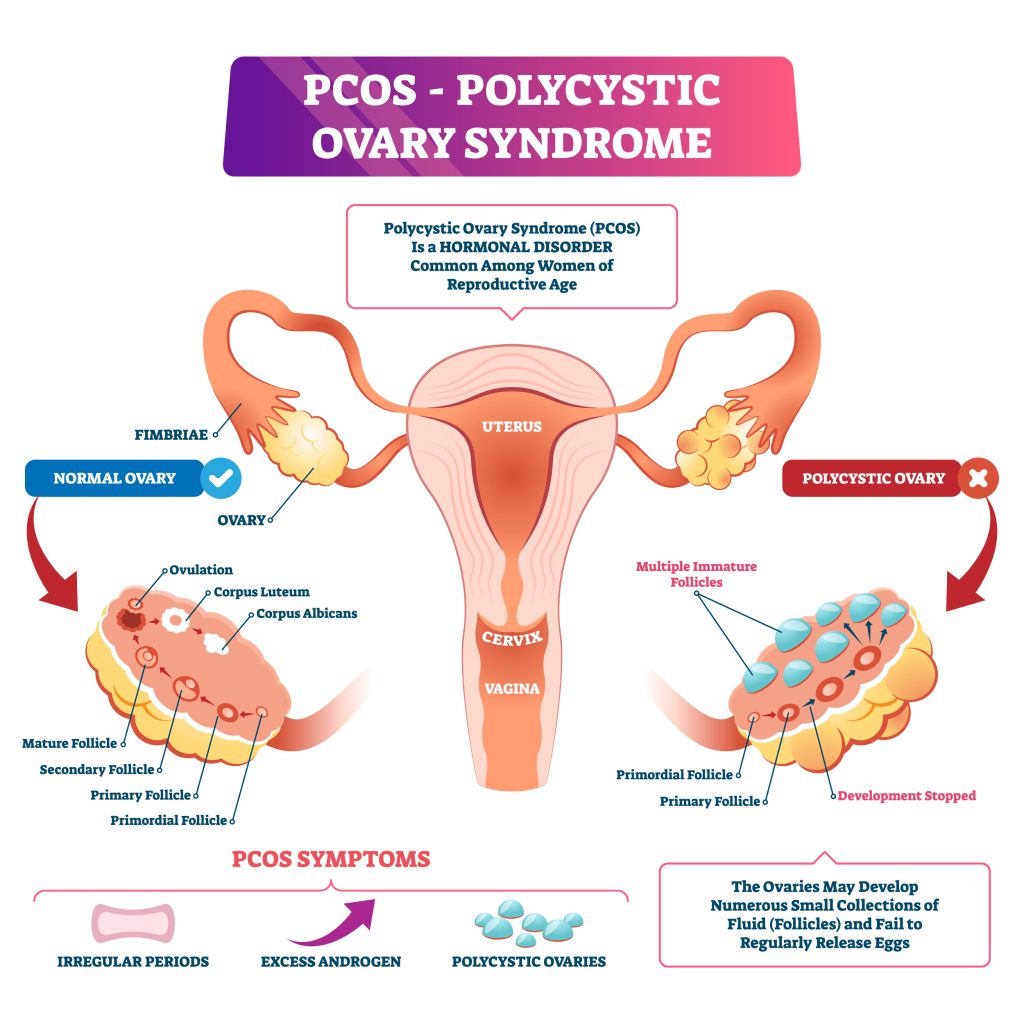Polycystic Ovarian Syndrome (PCOS)
PCOS is a diagnosis that affects about 10% of women. It’s best defined as a collection of symptoms that relate to anovulation (or lack of ovulation) and a high level of androgens (aka male hormones).
The most common symptom associated with PCOS is irregular periods, that usually look like late periods (or long cycles) or too many days of bleeding.
Other symptoms include the following:
- Excessive facial and body hair (hirsutism)
- Acne
- Hair Loss
- Weight gain
- Infertility
PCOS is also associated with an increased risk of diabetes and heart disease.
In some cases, women are wrongly given a diagnosis of PCOS. This can happen especially if it’s diagnosed primarily with ultrasound, or quickly after stopping long-term use of the birth control pill AND periods before you started the pill were normal. In these cases, the “PCOS” may just be a transient state of your body. PCOS cannot be diagnosed with ultrasound alone, because the appearance of polycystic ovaries does not necessarily mean polycystic ovarian syndrome. Polycystic ovaries can happen in healthy women, one study indicates this happens about 25% of the tie. Polycystic ovaries also happen more frequently in teens who also may experience longer cycles compared to older women.

In order to be diagnosed with PCOS, you must possess 2 of the 3 criteria:
- Oligo-ovulation or anovulation
- Clinical and/or biochemical hyperandrogenism
- Polycystic ovaries on ultrasound
If you have PCOS, then Dr. Natalie Bozinovski ND can help you implement a naturopathic treatment protocol. The great news is that a natural approach works really well to manage symptoms and improve your cycles (and fertility, if that’s a goal).
Book an appointment with downtown Toronto naturopath, Dr. Natalie B to get started right away.

